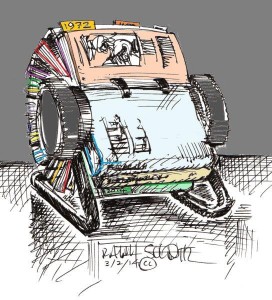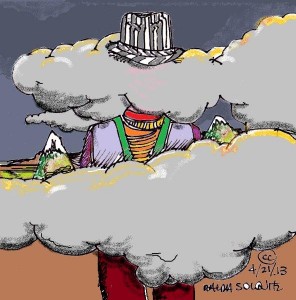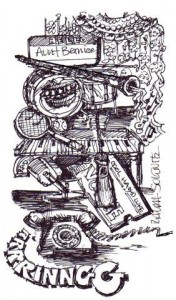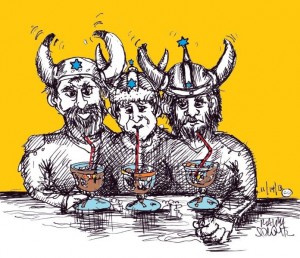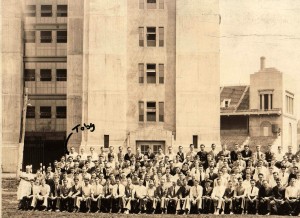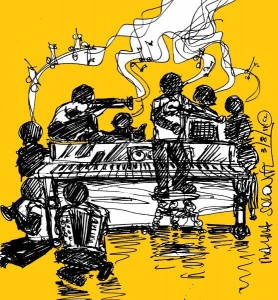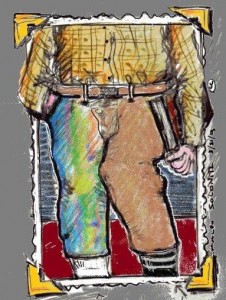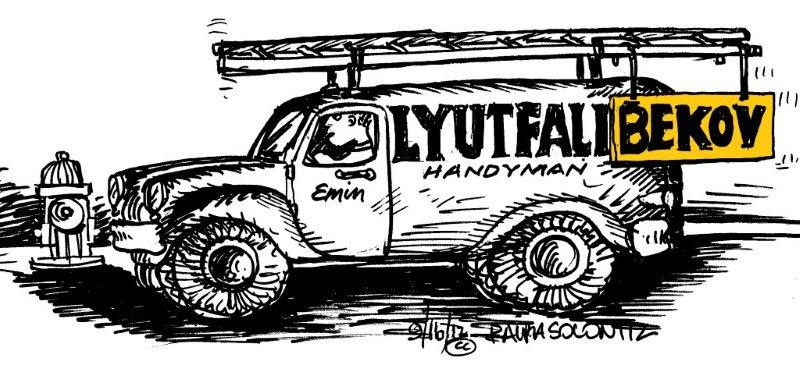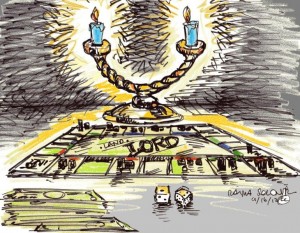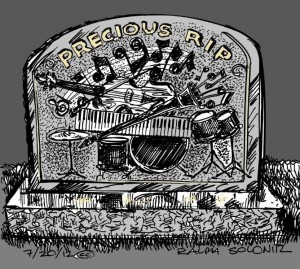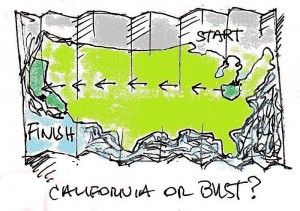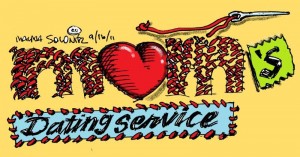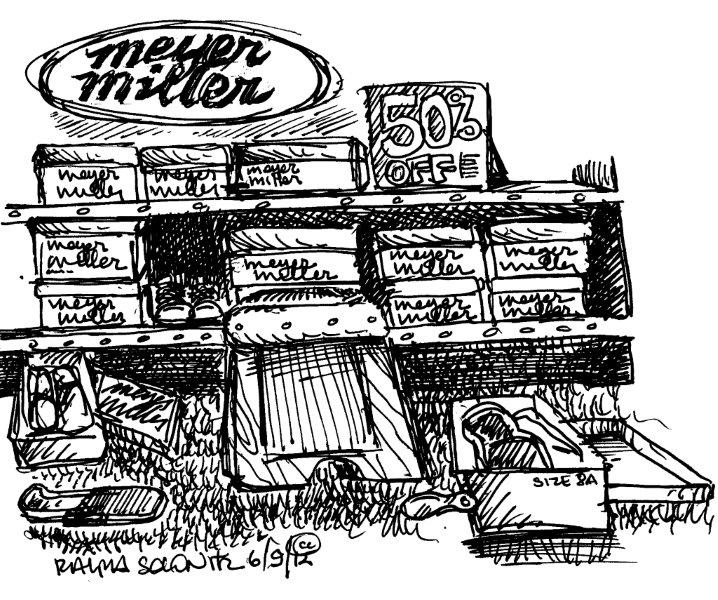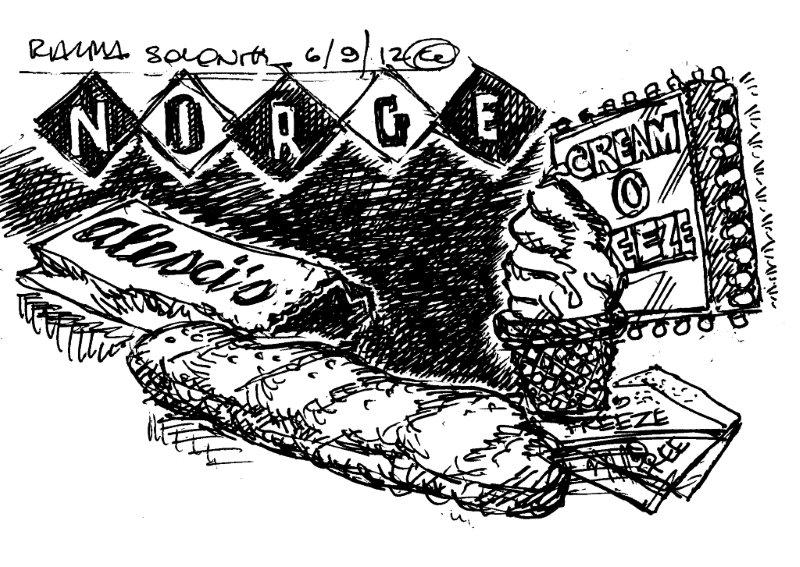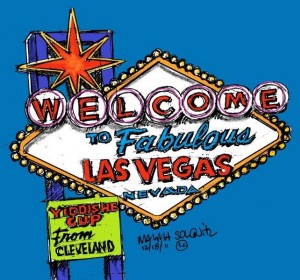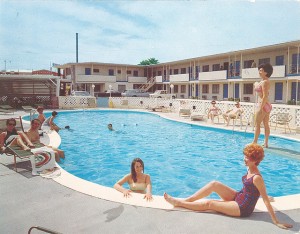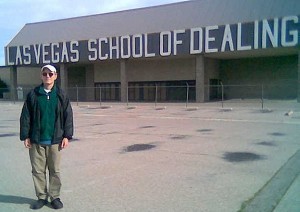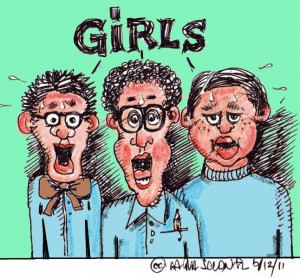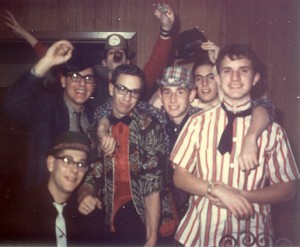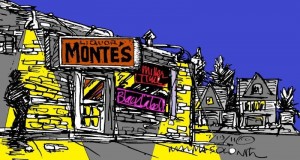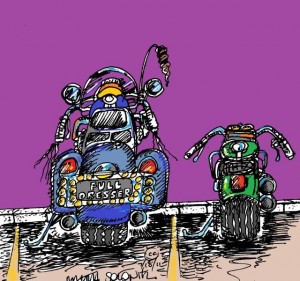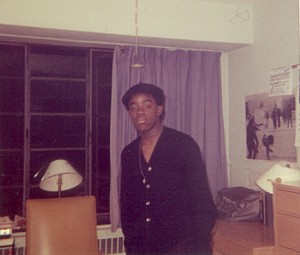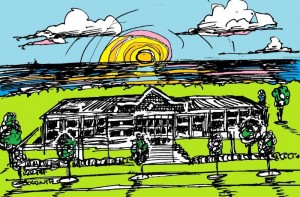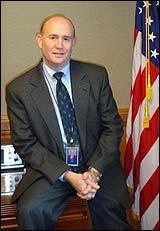Category — Coming of Age
BOOK LIST
Pamela Paul, editor of the New York Times Book Review, keeps a list of all the books she has read. She wrote about her list — that goes back to 1988 — in the book review.
I know somebody else who keeps a list.
My list goes back to 1973, Ms. Pam Paul! (Actually 1971, but I can’t find the 1971-72 portion right now.)
My four literary horsemen of the early 1970s were Kerouac, Saroyan, Thomas Wolfe and Henry Miller. Plus every beatnik writer. Every beatnik. That included Dutch motorcyclist/writer Jan Cremer and Turkish East Village beat Erje Ayden.
Here is my 1974 list, edited:
The First Circle Alexandr Solzhenitsyn
Geronimo Rex Barry Hannah
Kentucky Ham William Burroughs Jr.
Confessions of a Child of the Century Thomas Rogers
Strangers and Brothers C.P. Snow
The Manor Isaac Bashevis Singer
Pere Goriot Honore de Balzac
Tropic of Cancer Henry Miller
Blue Movie Terry Southern
Monday the Rabbi Took off Harry Kemelman
I’m Glad You didn’t Take it Personally Jim Bouton
Call It Sleep Henry Roth
My Friend Henry Miller Alfred Perles
The Wanderers Richard Price
Imaginary Speeches for a Brazen Head Philip Whalen
Franny and Zooey J.D. Salinger
The Boys on the Bus Timothy Crouse
Nine Stories J.D. Salinger
The Autograph Hound John Lahr
Raymond Chandler Speaking Raymond Chandler
Lolita Vladimir Nabokov
My Last Two Thousand Years Herbert Gold
The Slave Isaac Bashevis Singer
***
Did you skim or read that list? If you read it, here’s your reward — a continuation, with asterisks for really funny books. (At the end of the list, there is a prose wrap-up.) My fav books, generally . . .
1975
Keep the Aspidistra Flying George Orwell
Burmese Days George Orwell
Fear of Flying Erica Jung
A Fan’s Notes Frederick Exley
The War Against the Jews Lucy Dawidowicz
’76
Little Big Man Thomas Berger
Hot to Trot John Lahr *
The Fight Norman Mailer
Miss Lonelyhearts Nathanael West
The World of Our Fathers Irving Howe
Bloodbrothers Richard Price
The Rise of David Levinsky Abraham Cahan
Tales of Beatnik Glory Ed Sanders
The Idiot Fyodor Dostoyevsky
’77
While Six Million Died Lucy Dawidowicz
Thirteenth Tribe Arthur Koestler
Chrysanthemum and the Sword Ruth Benedict
The Last Tycoon F. Scott Fitzgerald
Confessions of a Nearsighted Cannoneer Seymour Krim
’78
Union Dues John Sayles
All My Friends are Going to Be Strangers Larry McMurtry
The Chosen Chaim Potok
A Feast of Snakes Harry Crews
The Basketball Diaries Jim Carroll
’79
The Cool World Warren Miller
Rabbit Run John Updike
Airships Barry Hannah
The Rector of Justin Louis Auchincloss
Sophie’s Choice William Styron
King of the Jews Leslie Epstein
’80
The Pope of Greenwich Village Vincent Patrick
Dubin’s Lives Bernard Malamud
The Apprenticeship of Duddy Kravitz Mordecai Richler *
The Right Stuff Tom Wolfe
Tess of the d’Urbervilles Thomas Hardy
’81
Jane Eyre Jane Austin
The House of Mirth Edith Wharton
Ethnic America Thomas Sowell
’82
Zuckerman Unbound Philip Roth
Maiden Rites Sonia Pilcer *
The Friends of Eddie Coyle George V. Higgins
’84
God’s Pocket Pete Dexter
Rabbis is Rich John Updike
This Way for the Gas Tadeusz Borowski
The Abandonment of the Jews David Wyman
Survival in Auschwitz Primo Levi
’85
Man’s Search for Meaning Viktor Frankl
The Headmasters Papers Richard Hawley
Bright Lights Big City Jay McInerney
The Art of Fiction John Gardner
Fathers Playing Catch with Sons Donald Hall
La Brava Elmore Leonard
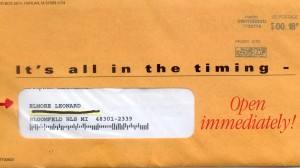
Elmore Leonard junk mail
’86
Babbitt Sinclair Lewis
Wiseguy Nicholas Pileggi
Providence Geoffrey Wolff
’87
The Sportswriter Richard Ford
The Great Pretender James Atlas
Bonfire of the Vanities Tom Wolfe
’88
Papa Play for Me Mickey Katz
Life is with People Mark Zborwski and Elizabeth Herzog
The Facts Philip Roth
A History of the Jews Paul Johnson
In Praise of Yiddish Maurice Samuel
’89
Old New Land Theodor Herzl
Architects of Yiddishism Emanuel Goldsmith
From that Place and Time Lucy Dawidowicz
’90
Paris Trout Pete Dexter
’91
Patrimony Philip Roth
Mr. Bridge Evan Connell
’92
Devil’s Night Zev Chafets
Rabbit at Rest John Updike
Rabbit Redux John Updike
’93
Class Paul Fussell
Days of Grace Arthur Ashe
’94
Lost in Translation Eva Hoffman
How We Die Sherman Nuland
Roommates Max Apple
’96
Moo Jane Smiley
Independence Day Richard Ford
The Road from Coorain Jill Kerr Conway
’97
Parts of My Body Phillip Lopate
American Pastoral Philip Roth
The Wishbones Tom Perrotta
’99
Ex-Friends Norman Podhoretz
Hole in Our Soul Martha Bayles
’00
The Trouble with Cinderella Artie Shaw
The Human Stain Philip Roth
Winning Ugly Brad Gilbert
’01
Up in the Air Walter Kirn *
’02
John Adams David McCullough
Selling Ben Cheever Ben Cheever *
The Corrections Jonathan Franzen
The New Rabbi Stephen Fried
’03
Samaritan Richard Price
Funnymen Ted Heller *
My Losing Season Pat Conroy
Fabulous Small Jews Joseph Epstein
The Case for Israel Alan Dershowitz
’04
The Da Vinci Code Dan Brown
Good Vibes Terry Gibbs
’05
Made in Detroit Paul Clemens
’06
On Beauty Zadie Smith
Prisoner of Trebekistan Bob Harris
High Fidelity Nick Hornby
Sweet and Low Rich Cohen
’07
America’s Polka King Bob Dolgan
Prisoners Jeffrey Goldberg
Infidel Ayaan Hirsi Ali
’08
A Random Walk Down Wall Street Burton Malkiel
Lush Life Richard Price
Dean’s List Jon Hassler
Irrational Exuberance Robert Shiller
’09
Rabbit at Rest John Updike
How I became a Famous Novelist Steve Hely *
Facing Unpleasant Facts George Orwell
’10
The Great Indoors Eric Broder *
Pops Terry Teachout
Olive Kitteridge Elizabeth Stout
’11
I Feel Bad About My Neck Nora Ephron
Open Andre Agassi
How to Win Friends Dale Carnegie
The Whore of Akron Scott Raab *
’12
I Married a Communist Philip Roth
Pocket Kings Ted Heller *
’13
The Love Song of Jonny Valentine Teddy Wayne *
***
I bought the Richard Price books for pleasure and investment purposes. His books are probably worth nothing. I have followed Price’s career since he was 25. I knew a woman who dated him at Cornell. Price is a Lit god around my house.
I like short books. Most classics are long, so I’m bad at classics. Funny books are my favorite. Throw in a few jokes, or lose me. I don’t need a strong plot.
I’ve read The Great Gatsby five times because it’s great and short. I would read it more often if it was funny.
I can’t remember most of what I read.
A lot here — in this post — is a rip off of Nick Hornby and his Ten Years in a Tub, about books Hornby has read in the past 10 years.
I haven’t read much philosophy. Any? I’ve tried the Bible a few times. Proust — I’ve done 50 pages with him. I’m good with Shakespeare!
I haven’t read The Hobbit or War and Peace. (Check out Buzzfeed’s “22 Books You Pretend You’ve Read but Actually Haven’t.”)
I’ve read many books about Cleveland. Here are three random CLE books: A Fares of a Cleveland Cabby, Thomas Jasany; Confused City on a Seesaw, Philip W. Porter; and First and Last Seasons, Dan McGraw. I’ve read all of Harvey Pekar. Harvey didn’t write much. Maybe 90,000 words total. Thanks, Harvey.
I’ve read every klezmer book, I think. Did you know a Polish academic, Magdalena Waligorska, cited this blog in her book Klemzer’s Afterlife (Oxford University Press)?
My wife occasionally takes my literary recommendations to her book club. But not lately. She recommended How I Became a Famous Novelist by Hely. That ruined my wife’s credibility.
If you read a book on this list, pick one with an asterisk. And if you don’t think the book is funny, bail immediately.
I’m bailing. Gotta list something. What, I don’t know. Maybe I’ll tally the people who liked this post vs. those who thought it was too self-indulgent.
March 5, 2014 12 Comments
AMERICAN GREETINGS
“Cleveland is a hard town. I came near committing suicide when I lived there.” — Robert Crumb, American Splendor intro, 1986.
Crumb worked for American Greetings. My dad, Toby, worked there too.
Toby was at American Greetings before Crumb. My dad worked with Morry Stone, who eventually became a vice chairman. My dad didn’t like working for anybody, including Morry, so Toby left in 1954.
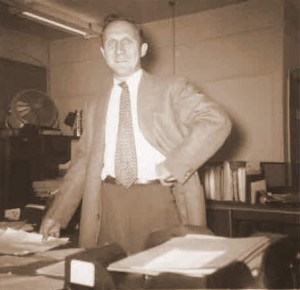
Toby Stratton, 37, at American Greetings, 1954
Everybody in Cleveland has worked at American Greetings, I think. Or tried to. I applied for a job at American Greetings in 1981.
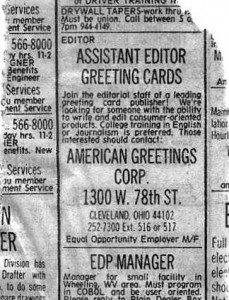
Plain Dealer, 1981
American Greetings had a Creative Building at West 78th Street. I didn’t even get called in for an interview. Maybe I wasn’t sick enough to write sick cards.
***
Robert Crumb again, 1996, Bob & Harv‘s Comics: “Cleveland is a city that has been ravaged by financiers and industrialists . . . its population abandoned to their fate, left to freeze their ass off, standing in the dirty winter slush, waiting for a bus that is a long time coming. Somehow they go on living.”
I haven’t lived anywhere else, so I can’t complain like Crumb. I went to college in Ann Arbor (which doesn’t count) and spent a few months in Bogota, Colombia, in my twenties.
Bogota was tougher than Cleveland. That, I can testify to. Bogota was rainy, gray, and headache-inducing from the high altitude. Cleveland was simply rainy, gray and slushy.
***
A pilot stood in a grassy field by the Bogota airport and said, “Tell your friends to throw their packs in back and we’ll be off.”
They weren’t my friends. They weren’t even Americans.
We climbed into the cargo section of the plane. “It smells like shit in here,” a Swiss girl said.
“This is Fish Airlines,” the pilot said. (Aeropesca.)
We landed in the Amazon a few hours later.
I ran into a college friend in the Amazon! I knew him from my freshman dorm. He said, “I scamp.” That meant he sold gems, coke, pot or counterfeit bills. “I’m going to reunite with my creators soon,” he said.
What?
“I’m going back to my parents.”
Adiós, amigo.
I tried to catch the ferry to Belem, Brazil. I waited several days in Leticia, Colombia, by the Amazon River dock, but the ferry didn’t arrive. I flew back to Bogota on the guppy/yuppie flight. (Guppies to Bogota, yuppies to the Amazon.)
In Bogota, I froze — even indoors. I wore two sweaters and socks-for-gloves in a small house I shared with a widow and her maid. I taught English at a nearby private junior high. For fun at night I read Cancer Ward . I also looked at photos of beauty queens from El Espacio and El Bogotano — the tabloids. My bedroom had doggy pictures on the wall, a toy cannon on the windowsill, and a crucifix over the bed.
For mental exercise I tried to reconstruct my high school schedule: first and second periods, PSSC Physics. What was third? What was PSSC? [Physical Science Study Committee.] I didn’t know many people in Bogie.
I heard Charlie Byrd play “Bogota” in Bogota. He was on a government-sponsored tour. Byrd en guitarra, con bajo y batería. (Byrd on guitar, with bass and drums.)
I went back to Cleveland after three months.
American Greetings. I couldn’t take Bogie. The major bookstore in Bogota was run by a Nazi, I thought. The owner was German, and I fabricated a fake bio, in my head, about him. I went to the Peace Corps office to borrow more paperbacks. I got Papillon, about a prisoner in Latin America.
I played blues harp for my English class. The kids loved it but the administration didn’t.
I had to leave. Bogie was un frío horrible (a freezing cold).
Crumb should write about Bogota. I want to hear his take on a real tough town.
—
Footnotes:
1. My Bogota adventure was in 1974.
2. I didn’t meet my college friend in the Amazon. I met him in Bogota. I remembered the encounter incorrectly. My friend straightened me out in Cleveland in 2013.
February 12, 2014 5 Comments
THE UPDATE ON MY FIRST DATE
At a nursing home gig, a resident told me she knew my late Aunt Bernice.
Another resident remembered me from my junior high days. Her daughter had played first-chair clarinet, to my second chair, in junior high band.
A third resident said he was the former dentist of Yiddishe Cup’s drummer. “What’s your drummer’s name again?” the dentist asked. [Don Friedman! The great Donny Friedman!]
I said, “I’ll give you the drummer’s name, but first I’m going to be clairvoyant!” I guessed the dentist’s name, his approximate age (90), and what he had done that morning — three hours prior to the gig.
I got everything right, but the dentist wasn’t impressed. He wanted the drummer’s name.
I guessed everything right about the dentist because 1. I had seen the dentist playing tennis at a nearby racquet club that morning. A 90-year-old guy playing tennis is hard to forget. 2. I knew his approximate age because he used to play tennis with my dad. 3. I knew his name because I had dated his daughter in high school.
The daughter and I had gone to see Cool Hand Luke at the Vogue, then out for shakes at Manner’s Big Boy, Van Aken. It was a fix-up by our parents. It was my one-and- only date in high school.
I asked the dentist, “What’s Barbara doing?” The daughter.
“She’s a piano teacher in Boston,” he said.
I just Googled her. She teaches classical and jazz. She used to be a radio DJ.
Did I make a major mistake not asking her out for a second date?
January 22, 2014 4 Comments
COLLEGE ADMISSIONS
A college kid told my band’s guitarist he went to Columbia University, and my guy said, “Where’s that?”
That knocked the college boy back a few SAT points.
College quiz question: What college narrowly missed being in the original Ivy League football conference?
Answer: Colgate University.*
Another fact: Yiddishe Cup once shared the bill with the Colgate glee club at a Cleveland wedding.
More: Former MIT folk dancers are a solid market for Yiddishe Cup. Yiddishe Cup has played several simchas for MIT folk dancers.
Regionally speaking, I was loyal to Ohio State for many years. My dad took me to Ohio State homecoming games every year. My father lived in a corner of Ohio Stadium, in the scholarship dorm, the Tower Club, which was actually a barracks with cots. My dad often said some of the gentiles at Ohio State, back in the 1930s, thought Jews had horns.
A New Jersey woman — a potential bar mitzvah customer — called me and said, “I went to Ohio U. in the 1980s. All the kids from Mentor and Madison [Ohio] thought I had horns.”
The Buckeye marching band had horns. (Horns and percussion. No clarinets.)
The only time my father yelled at a TV was when Ohio State played Cincinnati for the 1961 basketball championship. Who won? [Cincinnati, 70-65.]
I attended a college-rejection shiva. The shiva — at Corky & Lenny’s restaurant in April 1968 — was for a friend who was rejected by every college he applied to. He got in nowhere! He was ranked fifth, or so, in our high school class, but every college turned him down because the high school guidance counselor didn’t like him and wrote a negative recommendation. (He was way too political for my school.)
We sat in the corner booth at C&Ls and drank chocolate phosphates, commiserating with our friend. We were all in somewhere, and he wasn’t.
He eventually got accepted to Ohio State on a late application. Back then, if you had a heartbeat you could get into OSU. He wound up in an OSU high-rise dorm with 16 guys per suite. It wasn’t anything like the house system at Harvard.
***
I knew a college counselor at University School, a private boys’ school in Cleveland. If the counselor put in a good word for you, you were in. Harvard, Yale, you name it. Harvey Mudd. Deep Springs.
The counselor didn’t believe his own myth. Go to a school that was a “good fit,” he said. (“Good fit” was the watchword of college counselors.) This counselor went to Harvard, a “good fit” for a college counselor.
Here’s a tip for high school kids: on your application, focus on something esoteric. Write: “I want to be a klezmer musician because it is the cornerstone of my existence.” Describe a setback you have faced. “My parents don’t like klezmer music. They are so wrong. I’ve been thinking about klezmer my whole life.”
No guarantees, but give it a try.
—
*The statement about Colgate narrowly missing out on the Ivy League football conference may be apocryphal.
—
OSU Tower Club residents, 1937. Click on the photo to make it bigger. “Tower Club,” a sign, is on the stadium entrance to the left of “Toby.”)
November 20, 2013 4 Comments
COOL WORLD
1. CLEVELAND 1975
I wore red Adidas tennis shoes to an audition for a soul band at E. 91st Street and Union Avenue.
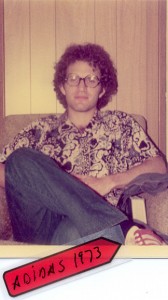 The bandleader, Amos, liked my shoe color and my skin color. He said, “Ain’t no Holiday Inn going to hire no band without a white guy, and right now there ain’t nary a grain of salt in this room.”
The bandleader, Amos, liked my shoe color and my skin color. He said, “Ain’t no Holiday Inn going to hire no band without a white guy, and right now there ain’t nary a grain of salt in this room.”
I wasn’t too good on sax and harmonica, but I got the job.
Amos thought harmonica was corn pone, not a respectable axe for a black man, but it was OK for a white. He said, “We can use that harp. You hip to Tower of Power? They got a bad white dude on harp. You hip to War? Another bad brother of yours on harp.”
The keyboard player had doubts — not just about my playing. He didn’t like Amos’ pot smoking.
The keyboard player broke up the band a few weeks later. He said. “Weed is communicating with the demon.”
“What you think?” Amos said. “What you gonna do when we play cabarets and shit? It ain’t no motherfucking church!”
“I said, I quit.”
Regardless of the church/cabaret conflict, we would have broken up. At our next rehearsal, Amos’ son was on drums, then a woman drummer sat in. The other horn player — an old guy, about 40 — had no teeth. He said, “I can’t play without my choppers.” But he could play. He played bebop.
Amos wanted to try gut bucket blues, even country western. “I’m unemployed! I’ll try anything,” he said.
I stopped by the Hibachi Lounge at Union Avenue and E. 103rd Street, where we were scheduled to play. The bouncer wore a red jump suit and a red wide-brim hat; he shuckled (davened) at the pay phone like he was listening to Dial-A-Jewish-Concept. Several women line-danced to the jukebox.
The women stopped dancing when they saw me.
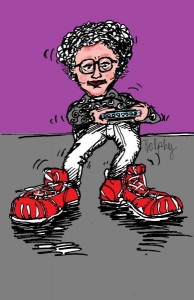
What's happnin', ladies?
Was I cool?
Ask the women. I got out of there.
2. DETROIT 2002
Yiddishe Cup shared the bandstand with a soul band at a fancy wedding. I asked the soul singer if she had seen the documentary Standing in the Shadows of Motown, which had just come out. She said her father, pianist Johnny Griffith, was in it.
The tenor player said, “The movie didn’t feature the horn players. It should have.”
The tenor player tuned up. He sounded better than most Yiddishe Cup jazz solos.
The tenor player liked our klezmer stuff, particularly our “Araber Tantz.” “What kind of scale is that?” he asked.
“In Yiddish it’s called freygish,” I said. (Freygish is the “Hava Nagila” scale: E F G# A B C D E.) “It has a flatted second and a 1½-step leap from the second to the raised third.”
“Very cool,” he said.
About time.
—
Public service announcement.
For all you readers down in Wayne County (Wooster), Ohio.
From Ellen Pill:
Re Don’t Buy From the Jew! A History of Jews in Wayne County, Ohio — 1840-1950.
We are writing a book and looking for any information on early Jewish settlers in Wayne County and surrounding areas: photos; newspaper clippings; personal information; and especially, anecdotes about daily life. Contact Ed Abramson: 330.345.5350 or Ellen Pill: ellenfpill@gmail.com
[Editorial comment from Bert Stratton: Don’t Buy from the Jew. Harsh! My grandfather Albert Zalk ran a “Jew store” in Yazoo City, Mississippi. They liked him down in the Delta. My wife’s grandfather George Rosen ran a “Jew store” in Clarksburg, West Virginia. I was there a few times. The town loved the Rosens.]
June 12, 2013 4 Comments
STYLIN’
I was somewhat stylish in seventh and eight grades. I shopped at Mister Jr.’s and Skall’s Men’s Wear at Cedar Center shopping center. After eighth grade, I gave up. I couldn’t cut it — shopping and fashion.
My dad had a friend who sold the Farah pants line in Cleveland. I liked Farah, but Farah wasn’t fashionable. Nice feel, but not too cool. Lee –- the brand — was cool. Farah was part of the Continental look — the greaser look. Iridescent sharkskin.
Italians clung to the Continental look for years. Jews got out of it quickly and moved to the “collegiate” look — Lee’s. Like colored jeans. This hurt Farah.
Ben Skall, an old guy, owned Skall’s Men’s Wear. He became a state senator. I had to give up white socks to enter Skall’s world; I bought black socks with gray rings around the top (Adler brand).
Sam McDowell and Hawk Harrelson shopped at Skall’s.
I didn’t quite make the in-crowd at school. I made the in-between crowd. My problem (one of them): I came from a hick elementary school –- a place with plenty shark-skinned Italians and few Jews. When I arrived at junior high, I noticed right off half the school was yiddlach, and these kids were by and large “fast,” and they could dress, and they could “mock you out” if you dressed wrong. I had no idea what to wear! I had a spread-shirt collar. That was verboten. It had to be button down. I went to Skall’s.
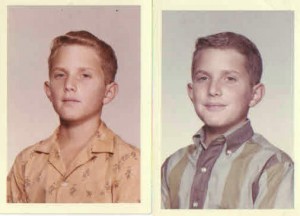
Wrong (L) / Right (R). Bert Stratton, early 1960s
I wore a fisherman’s knit sweater my mom made. Homemade was verboten too, but a girl complimented me, so I kept wearing the sweater. “Nice sweater,” she said. (If she had said “Nice sweater” — accent on the “nice” — that would have been a putdown.) Home run. Thanks, Mom.
I bought a shirt jac and light blue denim pants. The shirt jac didn’t tuck in.
Shoes: Pedwin loafers — black, cordovan, or olive green. Choose one. Cordovan was M.O.R. (middle of the road).
I bought Levi’s – not Lee – jeans. Cream-colored. Not blue jeans. Blue jeans weren’t permitted at my junior high.
The rules about clothes and fashion confounded me for several years. For instance, shirts could have box patterns, but not big boxes. If you wore a box pattern the size of a checker board, you were dead. I avoided box patterns and wore striped shirts — always appropriate.
One more thing . . . sweaters: Alpaca was the anchor of the Continental look. Alpaca sweaters were itchy and very Italian. The comfy V-neck sweater was the collegiate look. I had a gold V-neck called Summer Wheat. (Like my cereal, which is Autumn Wheat.)
I dropped out of the fashion whirl about ninth grade. I hung out mostly with nerds. “Nerds” wasn’t even a word. Neither was “geek.”
Dufuses? Dips? We were anti-social and afraid of girls. We were hopeless, so why shop?
This is ancient history.
What about knickers?
—
Footnote: Greasers were called “racks” at my school. Derived from “racketeers,” I think.
Click here for more on the guys I went to school with [a Klezmer Guy rerun, from 11/30/11].
And please read the info below this illustration. 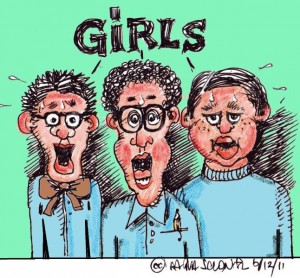

Tamar Gray
The Klezmer Guy trio plays Nighttown, Cleveland Hts., 7 p.m. Tues., April 23. $10.
Alan Douglass, keyboard and vocals, Bert Stratton, clarinet and prose; and Tamar Gray, mostly singing Motown vocals.
Tamar Gray’s uncle is Slide Hampton, the jazz trombone player. Tamar’s brother is Pharez Whitted, a Chicago jazz trumpeter. Tamar’s mother was part of the Hampton Sisters of Indiana. In other words, Tamar has yikhes (musical lineage).
—
Speaking of yikhes (and nepotism), Jack Stratton is 75% of the way toward reaching his latest Kickstarter goal. Check out his Kickstarter project here. It’s about Vulfpeck, Jack’s German-Jewish band.
April 3, 2013 4 Comments
HUMOUR ME
My friend Rob, a social worker, was fixated on Canada. He watched “Hockey Night in Canada” on TV and studied the Canadian railroad timetables. He filled out immigration papers to Canada, waited several months for clearance, and moved to a small town in Ontario.
The next day he came back to Cleveland. He was a mama’s boy, I figured.
He didn’t like the social work job, he said, but he liked Canada.
Rob definitely didn’t like Cleveland — the blasting car horns, the boom boxes, the leaf blowers, and his parents pestering him. One day Rob’s father said, “You’re going to move too far away.” The next day his dad said, “You need to go out into the world and prove yourself.”
I subscribed to “Hockey Night in Canada” for Rob, so he would babysit my then-toddler son for free on Saturday nights.
Rob moved to Canada again. This time to Nova Scotia. Change your place, change your luck, as the Hebrews sages say.
It worked. I haven’t seen Rob in 18 years.
I miss him, even though he verbally abused me. He was misanthropic. He was jaded. No, I was jaded. We held jadedness contests. Rob said I was restaurateur on a perpetual hunt for dishes my bubbe never made.
He said, “You crave urban experience so badly you would eat flankn cooked directly off the seat of a cross-town bus.”
True enough. So would he.
Rob and I listened to comedy records, played music together, and made fun of Jews. Rob knew more Yiddish than I did back then. His favorite curse was Gey mit dayn kup in drerd. (Go to hell. Lit., go with your head in the ground.)
We attended High Holidays at Case Western University Hillel. I had to drive; Rob was anti-car, anti-noise. He was so sensitive — probably the most sensitive person I’ve met, and that includes Harvey Pekar, who was not exactly loosey goosey on the avenue.
I schlepped Rob to a hillbilly bar on the near West Side, so he could jam with the house band. He played guitar and sang a couple tunes. Rob was devoted to country music — authentic country. Rob’s favorite player was Hank Williams.

Lake Erie gets you there: Canada. 57 miles. (Cleveland shore, Feb. 2013)
Rob made his sole East Side musical appearance at Heinen’s supermarket for a cancer-awareness fundraiser. He played “Good Old Mountain Dew” in the pop section and “Hava Nagila” by the oranges. He had a sense of place.
And he moved to Canada.
I wonder what he’s up to. He has family in Cleveland. He visits here, I imagine.
Rob doesn’t call. He doesn’t write. He doesn’t humour me.
—
“Rob” is a pseudonym.
—
At CoolCleveland.com today, “The Kid from Cleveland.” About a “kid” I ran into in Atlanta.
—
Extreme Canada is England. Here’s a video about England. (A Klezmer Guy rerun.)
March 13, 2013 No Comments
OHIO’S STATE
(A version of this post appeared in the Cleveland Plain Dealer 11/4/12.)
When will it end?
Superstorm Sandy or the election?
Either.
Definitely by Tuesday.
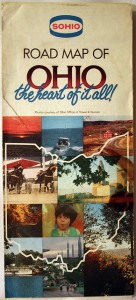 Ohio returns to flyover status Tuesday, and I’m back to looking for celebs at Ohio Turnpike rest stops — bands and gangsters traveling from New York to Chicago.
Ohio returns to flyover status Tuesday, and I’m back to looking for celebs at Ohio Turnpike rest stops — bands and gangsters traveling from New York to Chicago.
Bill Clinton, Bruce Springsteen and Condoleezza Rice: history.
My friend Jane posted on Facebook: “Can’t wait until this election season is over so I can be sane again.”
A friend from Rhode Island asked me, “How is it living in a swing state?”
“It’s swinging,” I said. It’s sweet. We’re loved.
When I’m not loved, I’m a landlord. I receive calls from political operatives who want to rent stores for “staging areas.”
I haven’t rented to a politician in years, because politicians tend to trash stores and not pay enough rent. The campaign workers are gone the day after the election, but the pizza boxes aren’t. And where are the keys?
I’m supposed to give the store away cheap, as a political gesture. My gesture: Pay and I’ll rent to you.
“I’m Brian,” said the young man on the phone.
“Where are you from?” I asked. He didn’t sound local.
“I’m in Cleveland right now.”
“I see.”
“I need the store for a few days.”
“How many people will be in the store?”
“Twenty to 30 people. They’ll go out canvassing. Teams are sent out.”
Twenty to 30 people is a lot of foot traffic for a 1,000 square-foot store, and a lot of pizza boxes.
Plain or pepperoni.
I’ll never know. My price was too high, I guess.
—
SIDE B
From the history channel . . .
PLAYING POLITICS
When a relative ran for school board and lost, my father said, “Don’t run again. You don’t want to get a loser’s reputation.”
My relative didn’t run again.
I, too, play by my dad’s rules.
I might run. When? Not saying.
First, a little background: I was a Kennedy man. (Who wasn’t? A lot of people.)
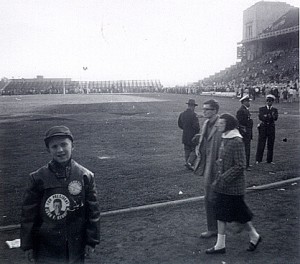
Bert Stratton w/ Kennedy buttons, Ohio Stadium, 1960
I started my own country (on paper) in sixth grade and elected presidents and representatives. My country was a solace, because in the real world I couldn’t run for president because a) I wasn’t 35 and b) I was Jewish.
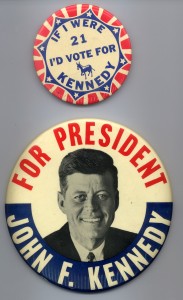 My mother said I could run and win. She duped me! My man, Abe Ribicoff of Connecticut, couldn’t even run. Newsweek said the country wasn’t ready for the Ribman for prez or even veep.
My mother said I could run and win. She duped me! My man, Abe Ribicoff of Connecticut, couldn’t even run. Newsweek said the country wasn’t ready for the Ribman for prez or even veep.
Now presumably a Jew could win the nomination for the top job.
Let me be clear: I won’t start out at school-board level or even vice president.
My Little League teammate Joel Hyatt (Cleveland Heights High ’68) ran for U.S. Senate and got clobbered. He hadn’t paid his dues; he hadn’t run for lesser offices.
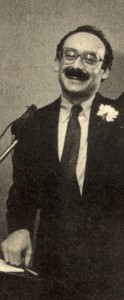
Lee Fisher wins state senate seat, 1982
Lee Fisher (Shaker Heights High ’69) paid dues. I saw him at civic club meetings in Collinwood in 1982: six neighbors, me and Lee. Fisher eventually climbed to lieutenant governor. Then he got clobbered for the U.S. Senate. He paid dues. Give him that.
I’m willing to pay dues. About $10.
My American history teacher in high school said Stratton is a good political name. (My teacher was Americo Betori. He should have run for mayor of Cleveland in 1950. He would have won.)
Stratton. Remember that name.
***
A few weeks ago at Simchat Torah, the rabbi said, “We will now read the last verse of the Book of Deuteronomy.” A Yiddishe Cup musician — not paying close attention — said, “Did he just say, ‘We will now read from the Book of Mitt Romney’?”
November 5, 2012 6 Comments
KILLER FLOORING
1.
My dad, Toby, and I hired Charles Tuncle for kitchen-floor lino jobs. Tunkl means dark in Yiddish, which my dad never failed to point out. Tuncle — the man — was black. Also, he was a killer. He shot a man in a bar.

Armstrong no-wax. Tuncle, 1984. (2010 photo)
When Tuncle was sent to prison, my dad wrote the parole board about Tuncle’s quality vinyl-floor work, and Tuncle got out early. My father never told the tenants — or our building managers — about Tuncle’s record. My dad never said: “You see that guy over there with the utility knife? He’s a killer.”
***
My dad called our business Reliable Management Co.
We should have hauled garbage with a name like that.
When I started an offshoot company, Acorn Management Co., my dad said, “What the hell does ‘Acorn’ have to do with anything?”
“Dad, I live on Oak Road. That’s why.” It was 1976. Environmentalism was the next big thing.
“Nobody is going to understand ‘Acorn,’” he said.
I sometimes call my company “Reliable + Acorn Management companies” now. That makes me feel like a Danish architecture firm.
***
I hired Standard Roofing for a roof tear-off. Standard Roofing went under. Too standard?
My electrician is Jack Kuhl, pronounced “Jack Cool.”
I knew Emin Lyutfalibekov, a handyman. I told him to shorten his name, and he said no way; he was offended. He said he was royalty back in Azerbaijan.
Napoli Construction is a bricklaying firm. Art Gallo, chief mason.
I use Donnelly Heating once in a while. Dan Donnelly. There are four Donnelly heating companies on the West Side: Dan, Tom, William and Original. They must have large Seders.
Lawrence Christopher Construction — that was Larry Vesely. He filled a hole for me for $9,000 — a coal bin that had collapsed beneath a parking lot. The city wouldn’t allow me to fill the hole with plain gravel. The city wanted a reconstructed coal bin that could practically double as a bomb shelter, complete with beams and concrete. Larry said the job would cost $3,000 and take several weeks.
The final bill was $9,000 and the job took nine months. One delay and complication after another.
I could not charge higher rents just because I had a nice coal bin. No tenant cared I had a bomb shelter.
I paid Larry back in nine monthly installments, just to get slightly back at him.
***
Tuncle the floor guy — I miss him. He died at 84 in 2008. A nice guy, except for that night in the bar. He didn’t have any other criminal record.
2.
I was at a gathering of Jewish landed gentry — a landlords’ shabbat — in Pepper Pike.
Landlord A — to my right — owned a 17-suiter which her late father had bought in 1955.
Landlord B owned a building his father bought in 1936.
Buy and hold, chaverim. Shabbat shalom.
I owned (with my sister) a building my dad bought in 1965.
In real estate — as in many fields — it’s good to pick the right father.
In college Donald Trump bought his first building, using his father’s money: a 1,200-unit apartment complex in Cincinnati. Trump’s dad owned property in New York’s outer boroughs. Trump’s net worth upon graduating college in 1965 was $1.4 million, in today’s dollars. [Trump, The Art of the Deal.]
Suites, a local real estate mag, did a profile on Marty Cohen, a Cleveland landlord. The article said Marty “couldn’t shake his interest in property management.” Marty worked at a bank for a while, but that wasn’t a good fit. His family owned a 150-unit Parma apartment complex. Maybe that had something to do with Marty finding a good fit in real estate.
Buy and hold, brothers and sisters. Pass the strudel.
3.
Griffith, the state boiler inspector, called.
I said to him, “You’ve been around as long as me!”
“Yes, sir,” he said. “I was around even when your dad was still around! You know, your father was a kinda guy. A good dude. I miss your dad. He was hoping you’d take over the business. And you did!” (My father died in 1986.)
“How long you been around, Griffith?”
“Since 1972. You were just a kid. You were in high school.” (I was in college, Griffith!) “Your dad was a little worried about you, I’ll be honest with you. I hope you don’t take this personally, he thought you didn’t have the fire. You know, he had went through some things that weren’t easy, and he wanted to leave the buildings to somebody who would appreciate them.”
“I gave my father some things to think about, I guess.”
“I’m proud of you. You come around. If he was around, I’d tell him how good you’re doing.”
I didn’t run the family biz totally into the ground.
My epitaph — if I’m lucky: I’m in the Ground But My Business Ain’t.
—
Next week’s post will be on Thursday, not Wednesday, due to Yom Kippur.
—
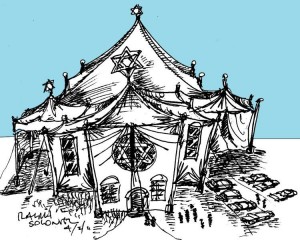 Here’s an op-ed I wrote for the Sunday Cleveland Plain Dealer (9/16/12). “High Holidays beckon twice-a-year worshipers.”
Here’s an op-ed I wrote for the Sunday Cleveland Plain Dealer (9/16/12). “High Holidays beckon twice-a-year worshipers.”
September 19, 2012 6 Comments
A LOVE SUPREME
The Jazz Temple was a music club in a former Packard showroom at Mayfield Road and Euclid Avenue. Coltrane played there. Dinah Washington too. 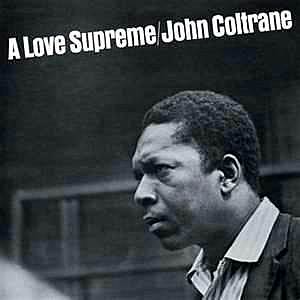 Everybody played there. The Jazz Temple was in business from 1960 to 1963.
Everybody played there. The Jazz Temple was in business from 1960 to 1963.
I passed the Jazz Temple weekly on my way to Sunday school at The Temple, a Reform synagogue in University Circle, Cleveland.
Rabbi Abba Hillel Silver was the head rabbi at The Temple. Rabbi Silver was very prominent; he spoke at the United Nations, advocating for the establishment of the state of Israel. Rabbi Silver’s son, Danny, was the assistant rabbi. He played football at Harvard and blocked hard for his dad.
The Sunday school kids at The Temple were mostly from Shaker Heights. One kid got a ride in a limo to shul. The driver wore a chauffeur’s cap.
I couldn’t grasp how temple — the word — fit into a non-Jewish setting, like in “Jazz Temple.” Was Jazz a religion too? (Give me a break. I was 10.)
Years later, I met a couple ex-beatniks who had been old enough to go to the Jazz Temple in the early 1960s. They had heard Trane and Ella.
The Jazz Temple was blown up in 1963. Somebody didn’t like the club, or the owner, Winston Willis, a controversial black businessman.
At The Temple, the religious-school kids would attend the last part of the service and hear the sermon. Rabbi Silver looked like God and talked like Him.
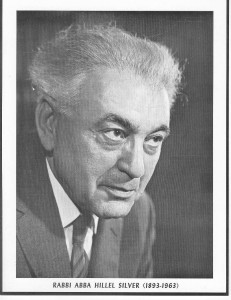 Today, at The Temple East in Beachwood, there is an Abba Hillel Silver memorial study. The rabbi’s desk is laid out like he just stepped out for lunch. He died in 1963.
Today, at The Temple East in Beachwood, there is an Abba Hillel Silver memorial study. The rabbi’s desk is laid out like he just stepped out for lunch. He died in 1963.
Rabbi Silver: Live at the Jazz Temple. Interesting.
John Coltrane: Live at The Temple. Another possibility.
A love supreme . . .
A love supreme . . .
—
SIDE B
PRECIOUS
In the arts, if you’re precious, you’re bad. Precious is the worst thing. Precious means you’re dainty and overly refined.
A friend (a former music critic) called all college a cappella music precious.
Harvey Pekar called Willio and Phillio — the Cleveland music-comedy duo — precious. (Willio and Phillio was around in the 1980s.) Willio and Phillio was precious — their stage name for sure. Willio (Will Ryan) went out to Los Angeles to work for Disney, and Phillio (Phil Baron) became a cantor in L.A. They were good, and probably still are.
Yiddishe Cup is precious occasionally. The musicians say “oy vey” too much on stage. I’ve tried to get my guys to stop. I can’t.
Peter Laughner, a Cleveland rocker, died from drug abuse and alcoholism at 24. He killed himself, basically. (This was in 1977.) He was not precious. He was dead — and funny — about art. He was in the Pere Ubu underground before Pere Ubu was famous.
Suicide doesn’t appeal to me for two reasons: 1) My wife would kill me if I tried it. 2) I want to attend my kids’ weddings and eventually meet my grandkids-to-be.
“Precious” is OK for grandkids. (“Grandkids” is precious.)
—
SIDE C
New construction — Side C — for Michiganders. . .
THE LODGE
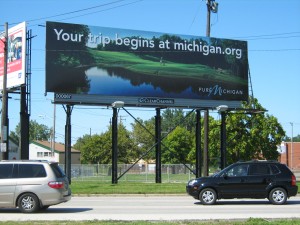
Chester Ave., Cleveland, 2011
I drove to Rochester, Michigan, which is not as cool as Rochester, New York, but it does have a small-town charm.
I’ve seen Father Coughlin’s former church in Royal Oak, Michigan.
I’ve been to Detroit many times.
My wife, Alice, said, “Detroit has very long roads.”
She probably meant Woodward, Gratiot and Telegraph.
Detroit also has the Lodge. Elmore Leonard mentions the Lodge in his books, like, “The gambling casino, Mutt, you can’t fucking miss it, over by the Lodge freeway.”
A couple Cleveland freeways and bridges have names, like the Bob Hope Memorial Bridge, but nobody ever uses the names.
I stayed at a hotel near the Silverdome, which looked like a big pillow. (The stadium did.) A Detroiter told me the Silverdome sold for about $200,000. A stadium for the price of a California carport.
Who was John C. Lodge? Probably a labor leader. [No, the mayor of Detroit in the 1920s.]
Detroit is like Cleveland. Detroit has the Eastern Market; Cleveland has the West Side Market. Detroit has downtown casinos. Now Cleveland has a downtown casino.
Metro Detroit has a few more Jews than Cleveland. And probably more Arabs, Poles and Ukrainians. And more blacks.
People who wear Tiger caps are cool, as are Indians cap wearers.
What about Berkley, Michigan? Is that worth a visit?
Elmore Leonard eats at the Beverly Hills Café. I wonder if that’s part of the Beverly Hills Café chain, or an independent restaurant in Beverly Hills, Michigan.
 I wonder if Elmore Leonard spends his winters in Detroit. I bet he doesn’t. He writes a lot about Florida.
I wonder if Elmore Leonard spends his winters in Detroit. I bet he doesn’t. He writes a lot about Florida.
I have some Elmore Leonard junk mail.
City Primeval: High Noon in Detroit. That’s worth reading.
Maple means 15 Mile. Big Beaver is 16 Mile.
What about Oakland University? Does the university have Bobby Seale barbecue sauce in the cafeteria?
I live only three and a half hours from Berkley, Beverly Hills and Oakland.
—
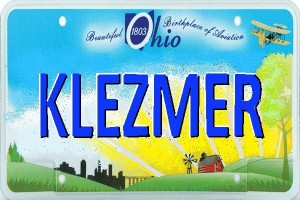 Yiddishe Cup pulls into Motown Sunday. See us at Cong. Beth Shalom, Oak Park, Mich.,
Yiddishe Cup pulls into Motown Sunday. See us at Cong. Beth Shalom, Oak Park, Mich.,
2 p.m., Sept. 9. Open to the public. Concert info here.
September 5, 2012 7 Comments
FUNERAL REPPING
When my parents spent winters in Florida, I occasionally represented them at their friends’ funerals in Cleveland.
I didn’t like the work. My mother would call from Boca Raton and say, “Edith was such a good friends of ours. Please go, son.”
Screw Edith.
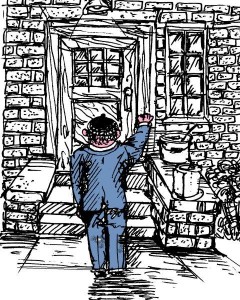 But I went. The hardest part was walking from my car to the shiva house. I pictured a bereaved relative opening the door and saying, “Who are you? Have you no decency? We don’t want any!”
But I went. The hardest part was walking from my car to the shiva house. I pictured a bereaved relative opening the door and saying, “Who are you? Have you no decency? We don’t want any!”
That never happened. I mingled with mourners. I was often the youngest non-relative there. Occasionally the rabbi would recognize me . . . “You have such a Stratton punim.” I looked like my mom or dad. Take your pick.
I eavesdropped. That was the action. An old woman said, “When I feel sick, I want to die. Then I get better and want to live.”
“Let me tell you something, deary,” another woman said. “They don’t ask when you want to die.”
My Cleveland Heights friends didn’t talk like that. They talked about marathons, 10Ks and Tommy’s milk shakes. A rabbi talked to me about the Cleveland Browns. Rabbis are into sports now, but a generation ago it wasn’t that common.
A food broker said, “I sell Heinen’s.”
Heinen’s didn’t interest me — not until at least fifteen years later.
I spent about twenty minutes per shiva call. The mourners were always appreciative.
My parents made me do it.
I’m glad.
—
Footnote:
While shiva repping, I met a California man who produced Joel Grey’s shows for 27 years. I said, “I’ll send you my band’s CD and you can show it to Joel. No, on second thought, I won’t send it, because Joel might sue me for ripping off Mickey Katz tunes.”
“Don’t worry,” the producer said. “Lebedeff’s people tried to hit Joel up for royalties on ‘Romania, Romania’ for years. No luck.”
—
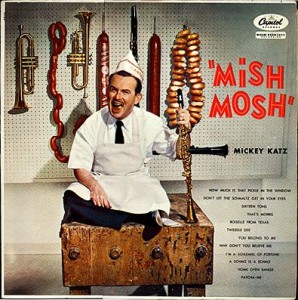 Yiddishe Cup plays 7 p.m. tomorrow (Thurs. Aug. 9) at Cain Park, Alma Theater, Cleveland Hts. We’re doing a tribute to Mickey Katz.
Yiddishe Cup plays 7 p.m. tomorrow (Thurs. Aug. 9) at Cain Park, Alma Theater, Cleveland Hts. We’re doing a tribute to Mickey Katz.
A documentary filmmaker from D.C. plans to be there. You might wind up in the movie.
Tickets are $20-22 in advance and $23-25 manana. Discounts for seniors and students. www.cainpark.com and 216-371-3000.
August 8, 2012 1 Comment
YOU ARE THERE: 1973
“Forty years ago, the news media were filled with reports of a generation gap. Let’s be grateful that we’ve finally solved that problem.” — Karen Fingerman and Frank Furstenberg, op-ed, New York Times, 5/31/12.
Beachwood, Ohio, 1973
I live with my parents at the Mark IV, a high-rise apartment by the freeway.
I’m living with my parents at age 23! My life is so unexciting it couldn’t get published in a mortuary journal.
Chekhov said, “People do not go to the North Pole and fall off icebergs. They go to offices, quarrel with their wives and eat cabbage soup.”
I want to go to the North Pole.
My dad almost clobbered me because I didn’t want to save five dollars on traveler’s checks by comparison shopping at banks. “You aren’t a millionaire yet,” he said, scratching himself. He was wearing just underwear.
Tonight at a party — a parents’ party — Zoltan Rich, the Hungarian know-it-all, said, “The students protest for entirely selfish reasons. You know what the chief word is we’re missing — the key to the whole discussion? It’s obligation. Parents have abrogated their responsibility.”
It’s time to go.
A guy from Case Western Reserve said he might give me a ride out west tomorrow.
California or Mexico?
I won’t come back here for at least six months. My mother has a bridge game here tomorrow. If I’m within 100 feet of that game, I die.
Move along. Try the Rand McNally approach to self-discovery . . .
It’s 3 a.m. in Utah. I’m under a lamppost, “sleeping” in a sleeping bag. I hear deer. Or is it bears? I’m afraid of nature! I hear semis shifting.
I wonder if I like “freak” America. Deep down I’m straighter than a library science major. I could wind up back in Cleveland. You can go home again.
Or maybe I’ll settle out in California.
My dad says, “I’m sure you’ll be a success some day.”
At what? Whatever it is, I should do a good job of it. My father never says, “What are your plans? What do you see yourself doing in ten years?” That would be cruel.
***
My last month in Cleveland was a hell. But not a bad hell. My mother lined up dates for me. The dates were daughters of my mom’s friends. I took girls to bars and ordered 7&7s. That was my booze repertoire: 7&7s.
I got feedback about the dates from my mother through back channels. She picked up tidbits at bridge games. Some of the girls liked me, some didn’t. One girl thought I was “a little weird.”
She was weird. She had no business dragging me through her dad’s kangaroo court (his living room was plastered with World War II medals) for interrogation. What are my plans? What do I do?
What’s an apricot sour? That’s what I want to know. She ordered that.
I’m sitting on the dock of the bay in Bodega Bay, California. I’m eating squid. Or maybe it’s a big snail. I’m not sure. I’m at a marine lab. Wastin’ time? I don’t know yet.
—
Part of this post was on CoolCleveland.com, 10/12/11, called “Mom’s Dating Service.”
—
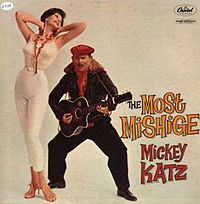 Yiddishe Cup plays a tribute to Mickey Katz 7 p.m. Thurs., Aug. 9, at Cain Park, Alma Theater, Cleveland Heights. For tickets: www.cainpark.com or 216-371-3000.
Yiddishe Cup plays a tribute to Mickey Katz 7 p.m. Thurs., Aug. 9, at Cain Park, Alma Theater, Cleveland Heights. For tickets: www.cainpark.com or 216-371-3000.
July 25, 2012 5 Comments
TENNIS, ANYONE?
I grew up in a gully, according to my friend Max Burstyn. Max said, “You lived on one of those dead-end streets that had flooding. You lived in a gully.”
Yes, there was some flooding, Max. I remember a canoe on my street.
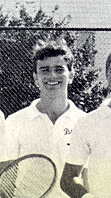
Max Burstyn, 1969
Max lived in the Jewish highlands on the other side of the public park. No flooding in the highlands there, and 99-percent yidlach. Max was equal to
1 ½ Jews. He spoke Yiddish and German. His dad was a Galitzianer from Krakow. Max was born in Munich and came to America as a baby in the 1950s.
I played tennis with Max in the park. That’s where we met.
Max still rants about the gully. He says, “You lived with the goys — like Stropki. I played Pony League with him. There were about eight Stropkis. What about Bobrowski? He was a Catholic too. Went to St. Joe’s. He played third-string for the Browns. He was from your street. There was Mastrobuono. He had a funny walk.”
True, I lived with Catholics, but I heard Jewish mothers shry gevalt (scream bloody murder) at their kids from across the park. Those Jewish moms had powerful lungs.
“Max, what about Willie Hendricks?” I said. “Why was he in your neighborhood?”
“Hendrick’s mother was Jewish,” Max said. “He could pitch.” Hendricks was about 6-4. He was drafted by the majors but never played pro ball.
Max was a self-described mischling ersten grades. (First-degree mixed race.) That’s a Nazi term, but Max used it — at least around me. Max’s mother was a German gentile and his dad was a Polish Jew. They met in Germany after the war. Max was halachically converted as a baby.
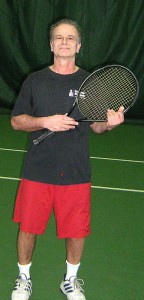
Max, 2012
Max comes to my house for shabbes. I like his Yiddish. He knows words that nobody else knows. He talks about a kudraychik — a swindler. I can’t find that in the dictionary. It’s probably Slavic, not Yiddish. For example, Max says, “There was a kudraychik, a Jewish barber, in the occupied zone after the
war . . .”
Max books rooms for a hotel chain. He works out of his house. He occasionally talks German to Europeans who want to book rooms in Florida and play golf. Max also gets calls from drunken Englishmen who call him “your majesty.” He has to work 92 percent of the time during business hours. He can watch baseball and football games on mute. “It’s not a bad job,” Max said. The occasional call from Germany, no boss and no commute. Not bad.
Max beat me at tennis. I hadn’t lost to him in a while. Did I sully the honor of the gully? I don’t think so. I’m not Catholic and I’m not gully-proud.
***
The tennis instructors at Bexley Park were mostly college kids who didn’t care about the job. One year it was Stovsky; the next year, Nagy, the state champ. These “pros” rarely showed us anything. Maybe they showed us grips: the Western, the Eastern, the Continental.
The courts were asphalt with cracks and weeds. At least the nets were real, not chain-link.
My dad got me about 10 private lessons at the Cleveland Skating Club in Shaker Heights. The pro there called me Tiger. I think he called most non-members Tiger. He was John Hendrix. He went on to coach at Ohio State.
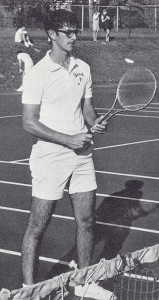
Shelly Gordon, 1969
Some of my Bexley Park tennis friends became jealous of me because of my private lessons. I got better than most of the Bexley players. One player, Shelly Gordon, still harps about my private lessons, like I violated the South Euclid Tennis Court Oath: Don’t Be a Tennis Snob. Shelly played at Ohio State and became a teaching pro in Israel. He’s self-taught. His strokes are horrible, but he’s good.
A seeming midget, Denny A., ruled Bexley Park, along with a gambler, Twitch, and a tomboy named Annie G. They bet on everything, like who could hit the most first serves in, who could bounce a ball the longest on his racquet. Bexley Park was not a genteel place. Some guys didn’t wear shirts. Billings –- the court gentile — played so much shirtless tennis he wound up with skin cancer.
Krinsky was the best hitter. He could have been a regional player, but he preferred baseball, softball and chasing girls. He was voted the “best dancer” in the senior class.
Max was third singles. Not that good, not that bad.
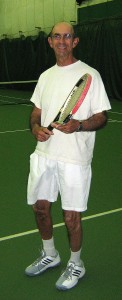
Shelly, 2012
Some of the best public court players were from neighboring Cleveland Heights. A couple Cleveland Heights boys took several private lessons at the Jewish country club, Oakwood. Garry Levy and Rich Greenberg became the number-one doubles team in Northeast Ohio.
The great public courts players of my day were:
Chuck McKinley, St. Louis
Billie Jean King, Long Beach, California
Pancho Gonzales, Los Angeles
Shelly Gordon, Cleveland
Shelly is remembered by all some in Cleveland, even though he moved to Israel years ago.
—
Yiddishe Cup plays 7:30 p.m. Thurs. (July 5) on the lawn at Wiley Middle School, 2181 Miramar Blvd., University Heights, Ohio. (Indoors if raining.) Free. It’s “Family Fun Night” with games and free ice cream one-half hour before the show.
July 3, 2012 2 Comments
THE NOSTALGIA VORTEX
About half the people I meet in Cleveland are graduates of Shaker Heights High School or Cleveland Heights High.
The others are often out-of-towners. (“Out of towner” is anybody who moved to Cleveland within the last 30 years.)
Cleveland Heights High grads like to reminisce about the Cedar-Lee neighborhood. Their nexus is the Cedar Lee Theatre and what used to be around there . . . Mawby’s, Meyer Miller shoe store, Earth by April.
One Heights guy told me he learned almost everything in life by selling shoes at Meyer Miller.
Meyer Miller’s co-owner was Cuppy Cohen.
The pool hall below the Cedar Lee Theatre was Wally’s.
Who cares? Heights people do.
Sid Abrams, the late freelance writer for the Cleveland Jewish News, wrote about Coney Island for many years. He and the Jewish News editor grew up in Coney Island. Two people in Cleveland read the Coney Island stories: Sid and the editor.
My nostalgia vortex is Mayfield Road, South Euclid. Mayfield Road was Italians and a couple Jews. My elementary school was on Mayfield, as was my high school. On my way home from elementary school, I would buy Italian bread at Alesci’s and hollow out the insides. My mother would say, “Where’s the bread?” as I handed her the crust.
West of Alesci’s was the Cream-O-Freeze; to the east, Norge Village Laundromat. It took a village . . . Jay Drugstore (for baseball cards), Lawson’s (for Hostess cupcakes), Society for Savings (for uncirculated pennies).
Excuse me, I have to check the Sohio Jackpot winners list.
June 11, 2012 No Comments
MY FORMER IDENTITY
When I got rid of my LP record abums, my friend Carl said, “How can you do that?”
The LPs were heavy, for one thing. And I hadn’t listened to them in 20 years. “Carl, in 10 years I might not be able to physically pitch them, ” I said. “I’ll be pointing at each one from my La-Z-Boy and making my kids choose between Bob Dylan and Charlie Parker. So I’m doing it now for my kids’ sake.”
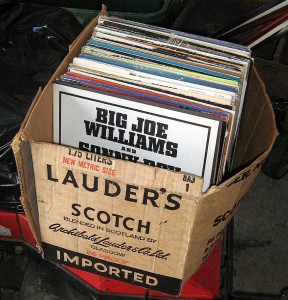
I could have put my records on the treelawn (Cleveland-
speak for the grass strip by the curb). I could have taken the LPs to a record store. Or a record store could come to me.
A record store came to me. Pete the Record Guy showed up at my house.
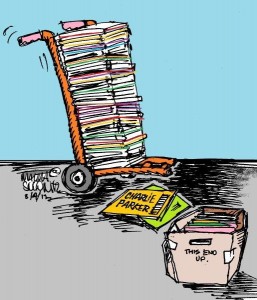 Just prior to Pete, Carl took five LPs for a wall montage. He liked Coltrane Plays the Blues, Volunteers by Jefferson Airplane, and Archie Shlepp’s Four for Trane — all good cover art. Carl, a roots-music maven, said I was in the top 5 percent of respectable record collections.
Just prior to Pete, Carl took five LPs for a wall montage. He liked Coltrane Plays the Blues, Volunteers by Jefferson Airplane, and Archie Shlepp’s Four for Trane — all good cover art. Carl, a roots-music maven, said I was in the top 5 percent of respectable record collections.
My record collection was my former identity. It was my Facebook persona, circa 1975.
I found a receipt in a Stuff Smith Black Violin album — $1.50 from Mole’s. Where was Mole’s? I don’t remember. [It was on Coventry Road in Cleveland Heights.]
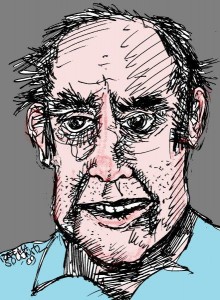
Harvey Pekar
Harvey Pekar used to rifle through my albums. The only album he ever wanted was my Charlie Parker Memorial Album, Vogue Records, England, 1956. I didn’t sell it to Harvey. I figured, If Pekar wants the record that badly, it must be worth something.
I checked on the Charlie Parker Memorial on the Internet. Today it’s worth £5.40 to an Englishman on eBay. That’s about $9. Nothing. Pekar was always into small numbers.
My kids didn’t want my albums.
I wanted to play Lenny Bruce’s “Lima, Ohio” bit (from The Best of Lenny Bruce) for Carl, but I didn’t have a record player handy. Carl said, “It’s probably on YouTube.”
Right. That’s why I got rid of my records.
Pete the Record Guy went through my albums three times. Adiós Aretha Live at the Fillmore West, John Handy’s Carnival, Paul Butterfield . . .
Let it go.
Three-hundred dollars from Pete for 100 records. Not bad. Pete didn’t care about the condition of the records. Pete said young kids –- his main customers — “won’t buy the reissue LPs, they want the originals, like yours.”
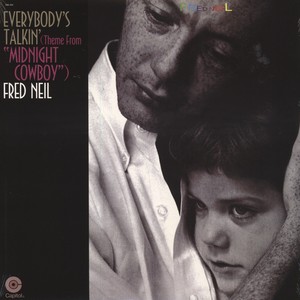 I said, “What jumped out at you? Is there any album worth 90 percent of what you paid me?”
I said, “What jumped out at you? Is there any album worth 90 percent of what you paid me?”
He said, “I like your two Fred Neil’s, Everybody’s Talkin’ and Sessions. You don’t see those often.”
“Let me take a photo. Don’t worry, Pete, I’m not taking the records back.”
—-
SIDE B
(This flip side is a little something extra for readers arriving on the A train from New York Times Square. Northerners, let’s trash the Sun Belt . . .)
ATLANTA: NOT SO HOT
Atlanta is not far enough south for some Atlantans. Right next to the Atlanta airport is a billboard “Beach Bummed?” Meaning, go to Florida.
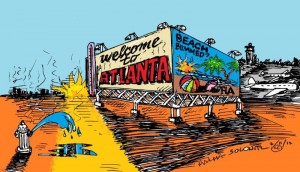
Atlanta isn’t very good for sunbathing unless you want to tan your left elbow in traffic for several hours.
I was at Atlanta airport, going through nine time zones to get to my gate. The TSA clerk, glancing at my ticket, said, “So you’re going back to beautiful Cleveland?”
Yes, sir, and it’s a lot better than Atlanta. (I didn’t say anything.) Cleveland is not Paris — or Pittsburgh, for that matter — but it’s a step up from a Southern-sprawl traffic crawl.
I’m going to Atlanta this month for a family bat mitzvah, and I have a summer gig there with Yiddishe Cup. I’ve been to the Coke Museum twice. Is there a rum-and-Coke museum in Atlanta? If so, where?
—
Atlanta relatives, nothing personal!
—
My best writing is “The Landlord’s Tale” in the latest City Journal. Please check it out. Must read long amusing essay about real estate now!
March 7, 2012 9 Comments
BEST SHOW IN VEGAS
I was back from Las Vegas, attending a Shaker Heights brunch. Several people asked, “Did you play?”
Did Yiddishe Cup play Vegas?
I wish Yiddishe Cup had played Vegas.
I had been in Las Vegas on vacation with my wife, Alice, and older son, Teddy. I had played blackjack.
That was my second trip to Vegas. My first trip was in 1962, when a Vegas waitress predicted I (then-12 years old) would return to Nevada for my honeymoon. That waitress was very wrong.
I prefer outdoorsy vacations.
On my latest trip I won $7.50 at blackjack at the Jokers Wild, then quit. I could hardly breathe in the Jokers Wild –- or in any other Nevada casino — because of the cigarette smoke. I hung around the casino parking lot, waiting for Teddy and Alice to finish up.
My favorite Las Vegas attraction is the Red Rock Canyon, which is similar to Zion National Park, but only 17 miles from Vegas.
The Red Rock performs daily in an original revue that is F’n Crazy! Be a Part of It! Best Show in Vegas for the Past 900 Years!
***
December 28, 2011 5 Comments
NO GIRLS ALLOWED: KEEP OUT!
The Intakes, a JCC boys’ club, should have met at the old Council Educational Alliance on Kinsman Road. The Intakes was a throwback to a Depression-era settlement-house boys’ club.
The purpose of the Intakes was to keep teenage boys off the streets, which wasn’t too hard because we studied so hard we rarely went out.
The club president had a regular Saturday night excuse: “I’ve got too much homework. I can’t go out.” On Saturday night? One summer the club president landed a grant to write a report on the crystal structure of molecules.
The Intakes Club didn’t “intake” girls. We were for the most part afraid of girls. We played poker, miniature golf, bowled and held meetings.
Our advisor was a social worker from New York. He often called us “schmucks,” which we found endearing.
We debated where to spend our money, which we earned by selling salamis and Passover macaroons.
Should we go to New York or Washington?
We went to both, on the Hound. (Two different trips.)
In New York we went to the Statue of Liberty, saw Jeopardy! live and ate at Katz’s Deli. I bought Existentialism Versus Marxism in a Village bookstore. I haven’t finished it yet.
In Washington we met our congressman and pantsed an Intake back at the hotel. We tried to post his pics on the ’net, but got an error message: Internet not invented yet.
Our congressman, Charles Vanik, had an administrative aide, Mark Talisman, a small smart Jew who was just eight years older than us. He seemed to know everything about the government. He gave us a private meeting. He was the puppet master for the entire suburban east side of Cleveland.
Talisman was an inspiration. He made it out of the tough Harvard-Lee neighborhood to Harvard U.
We should have made Mark Talisman an honorary Intake.
We shouldn’t have taken those naked pictures.
November 30, 2011 6 Comments
THE BILLYS
My parents often name-dropped Billys, who I usually didn’t recognize.
The Billys were:
1.) Billy Rose. He put together the Aquacade show at the Great Lakes Exposition in 1936-7. The Aquacade was a theater-like pool. There was an orchestra and synchronized swimming. Johnny Weissmuller starred in it. Billy Rose took the show to the New York World’s Fair in 1939.
2.) Billy DeWolfe. A character actor. Billy De Wolfe occasionally ate at my Great Uncle Itchy’s restaurant, Seiger’s, on Kinsman Road. Was Billy De Wolfe really Billy D. Wolf, Billy The Wolf, or what?
3.) Billy Weinberger, a Short Vincent Street restaurateur (Kornman’s) who moved to Las Vegas in 1966 and took over Caesar’s Palace. My Uncle Al got discount hotel rates “from Billy” in Vegas. Billy was close with the Cleveland mobsters who started Vegas.
***
Did I ever name-drop Billys to my kids? I don’t think so. I can’t think of any Billys. My parents took all the Billys.
I did Garys: Gary Moore, Gary Powers and Gary Lewis.
—
Bonus: Whatever Happened to Putt Putt?, an original video:
October 19, 2011 5 Comments
ALMOST BLACK LIKE ME
At Monte’s bar in South Euclid, there was a lot of talk about blacks, but no blacks.
For instance, a Harley Electra Glide was a “nigger-lighted” Harley. The Harley Electra Glide was the black man’s bike because it had after-market trim lights. The white man’s bike was the Harley Sportster, the chopper.
“Nigger fishing” meant casting from the power-plant pier instead of from a boat. Sheepshead was a “nigger fish,” usually caught from the pier. Lake Erie perch was a high-end fish, often requiring a boat to catch.
Monte’s bar also featured Italian specials like tizzone (“coal”) and mulunyan (“eggplant”).
I went to Monte’s to see my neighborhood friend Frank, a mutuel clerk at the racetrack. He wore a snub-nosed .38 in a shoulder harness and always had a wad of cash. Frankie didn’t like dirty money. “I can’t stand it when people give me dirty bills,” he said.
Frank’s mother had played banjo in an all-women’s band, and his father had idolized trumpeter Harry James.
Frank played trumpet in a white soul band. He kidded me because I dabbled in a “nigger band” — a band with blacks.
I was interested in soul jazz (Hank Crawford, Wes Montgomery), which I had heard at my college dorm. I had lived across the hall from three Detroit black kids who were from inside 8 Mile — way inside. Two were dopers into scag (heroin), grass and cocaine. They railed at me for being so straight and suburban. I bothered them. They would say: “Bert, you be a trippin’ motherfucker . . . You’re a bitch with your shit . . . That motherfucker be trippin’ . . . ”
They kidded me because they loved me . . . “Stop playing that country shit!” (I played blues harmonica along to Brownie McGhee and Sonny Terry tapes.)
When money was low, the dopers would go to the parking garage across from the dorm and sniff gas from cars for a high. That was called “hitting the tank.”
The third black kid was a non-doper. He was middle-class, an “elite.” He moved to another floor and became a doctor.
At Monte’s bar, patrons liked the idea of blacks and black slang. I was the maven on the subject. Frankie suggested I go to the ghetto and talk shit.
Great idea. I went to Hough and walked past an angry black man (not too hard to find in the early 1970s) and said, “What’s happnin’, man?”
“Nothin’ to it,” the man said, not breaking stride.
I was hip. He was hip.
I stayed hip for another two years, until I took an ulpan (Hebrew course) at Case Western Reserve Hillel.
—-
“Monte’s bar” is a made-up name. “Frank” is also a pseudonym.
—
More on Frankie at today’s CoolCleveland.com. See “Mom’s Dating Service.”
—
World-class shofar playing from Cleveland . . .
More on this guy — and his Kickstarter project — here.
October 12, 2011 8 Comments
MY PERSONAL G-MAN
The FBI building in Cleveland on Lakeside Avenue is on a bluff overlooking Lake Erie. The building is outside the downtown district by a few blocks and somewhat secluded.
I went there to see the head man.
To get to him, I went through two minutes of various security checks in the lobby. Then I was in the boss’ office, overlooking the lake. Nice. If the sun had been out, it would have been Santa Monica.
The boss, Gary Klein, and I were old friends from high school. Gary had been a fearless JCC-league basketball player. After high school, Gary went off to Annapolis, where he got his nose broken by a Southerner in a boxing match. Gary told me some of the students had razzed him because he was Jewish. It didn’t faze him.
Gary was tough, but not greaser tough. He was smart and bowlegged like a cowboy.
Gary showed me the FBI’s war room and the bug-proof room. He said FBI life looked glamorous but wasn’t. In 19 years he had lived in Boston, New York (Cosa Nostra and Russian mob work), Phoenix, Houston, Washington and Cleveland.
His new job was snooping on potential terrorists in northern Ohio, from Cleveland to Toledo. He said, “Ninety-nine percent of it is B.S. leads, like somebody dumping burial ashes over Parma Heights.”
Fighting terror was job one, forget about The Mob, he said.
Gary, how can we forget The Mob? They’re a lot more fun than Islamic terrorists! We grew up on The Mob. Hollywood wouldn’t exist without Mob movies. I had been inside the Little Italy house of James Licavoli (aka Jack White), the last head of the Cleveland Mob. Licavoli made wine in his cellar. Drinks all around.
Gary asked me to keep my eyes open.
I said I would. (This was 2003.)
So far nothing but B.S. leads, thank God.
September 7, 2011 3 Comments

